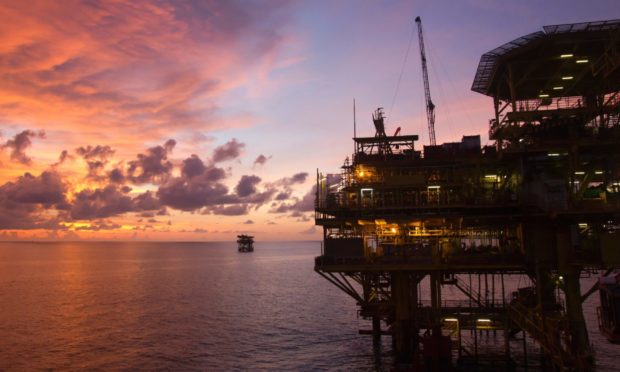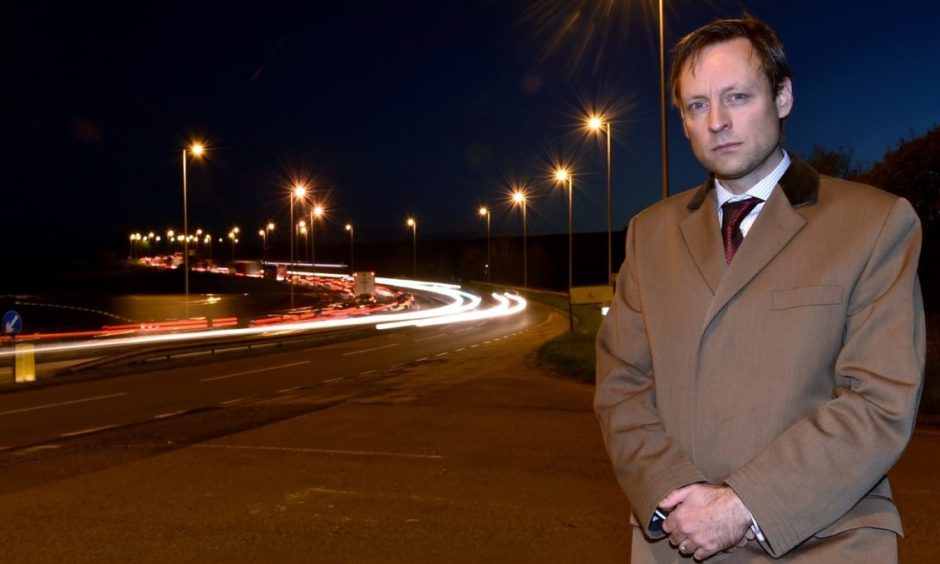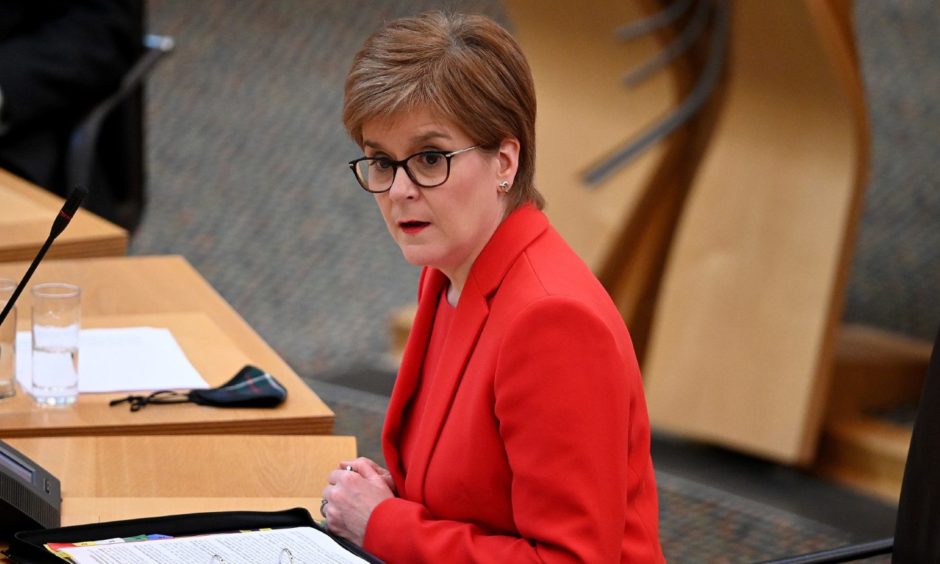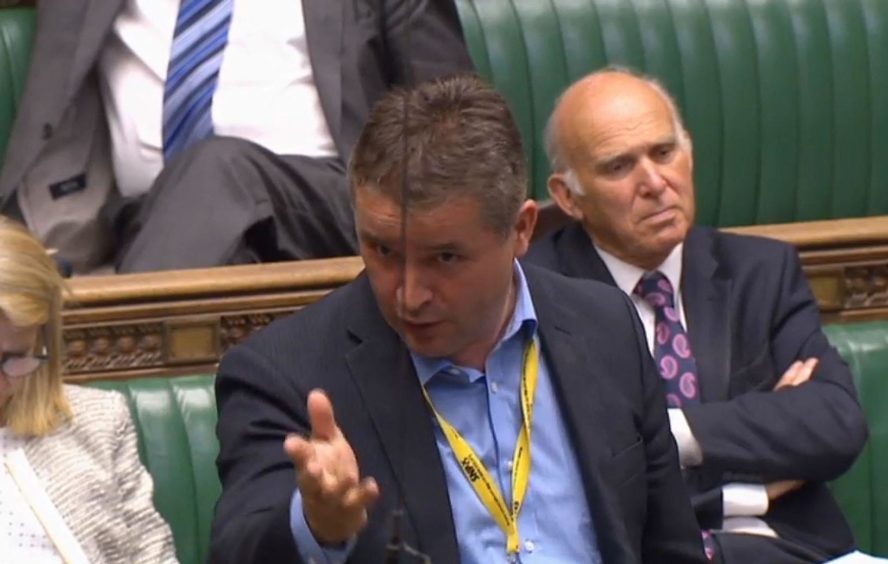Nicola Sturgeon has agreed to “consider” a move to exempt offshore workers from having to quarantine in hotels when they return from overseas but warned any decision will be subject to the “utmost caution”.
The Scottish Government has been under growing pressure to extend the list of exemptions from its new “managed isolation” policy for arrivals in Scotland to allow returning oil and gas workers to self-isolate at home.
Under the current rules, anyone arriving in Scotland on an international flight must self-isolate in a hotel room for 10 days at a cost of £1,750 a head.
But industry body Oil and Gas UK has warned the new policy means affected individuals in the offshore sector will only be able to spend a handful of days at home at a time, potentially having a “significant impact” on their mental health.
At first minister’s questions on Friday, North East MSP Liam Kerr called on the Scottish Government to consider adding oil and gas staff working abroad to the exemption list.
He said: “Following the announcement of the extended quarantine regulations, constituents in the oil and gas sector have raised concerns that offshore workers who support projects overseas on a 2:2 rota would have to spend 10 out of 14 days of their field break alone in a hotel room.
“Of course they understand the need to minimise the chance of new variants and the need to restrict exemptions but given the unique nature of the offshore rota, would the first minister consider reviewing the list of exceptions to allow these overseas workers to self-isolate at home?”
Ms Sturgeon said the Scottish Government will consider an exemption for offshore workers to self-isolate at home but warned any easing of the restrictions could increase the risk of coronavirus being imported into Scotland.
“We have already said that we will consider any arguments that are made for particular groups so the short answer, I suppose, is yes, we will consider it,” she said.
“But I want to follow that up immediately with a strong caveat that the more exemptions we have from the managed isolation policy, the more chance there will be of new variants of this virus coming into the country.”
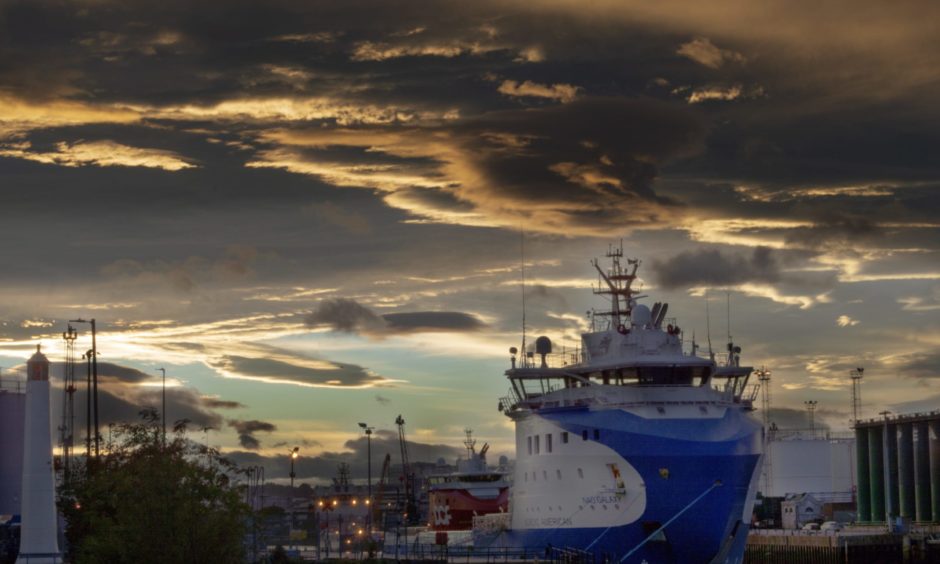
The first minister said officials have to “balance all of this and come to the best position overall” because as infections fall and vaccinations continue to be rolled out, the “bigger risk” facing the country could be from the importation of new variants.
“That’s why we need to have the utmost caution about borders and about travel,” Ms Sturgeon said. “So we will continue to consider fairly any calls for greater flexibility but we will apply a very rigorous assessment of that.”
Oil rig workers
Western Isles MP Angus MacNeil confirmed on Wednesday he has written to transport secretary Michael Matheson, asking him to review the current situation.
He said: “I have been contacted by oil workers who work in Norway. These workers already have to leave home early in order to get a PCR test and they are now looking at spending 10 days isolating in a hotel before they can get home to their families.
“While there are some exemptions for seafarers coming from safer countries, such as Norway, oil rig workers are, strangely, not included.”
Mr MacNeil added: “Imposing hotel isolation before returning home is going to be extremely difficult. They are working hard to support their families and perhaps they should be allowed to isolate at home, and of course subject to testing.”
The process has been handled shambolically and left workers in limbo over whether they are able to come home or not.”
Liam Kerr
Speaking after first minister’s questions, Liam Kerr called on the Scottish Government to stop “dithering” and acknowledge the concerns.
He said: “The SNP Government have failed oil and gas workers in the north-east by their constant dithering on this issue. The industry wants an answer now, not later – the Scottish Government have had weeks to think about this.
“Oil and gas workers have told me they are more than willing to follow the 10-day isolation at home and get tested but, under the current guidelines, face the prospect of possibly not seeing their families at all.
“The process has been handled shambolically and left workers in limbo over whether they are able to come home or not.”
